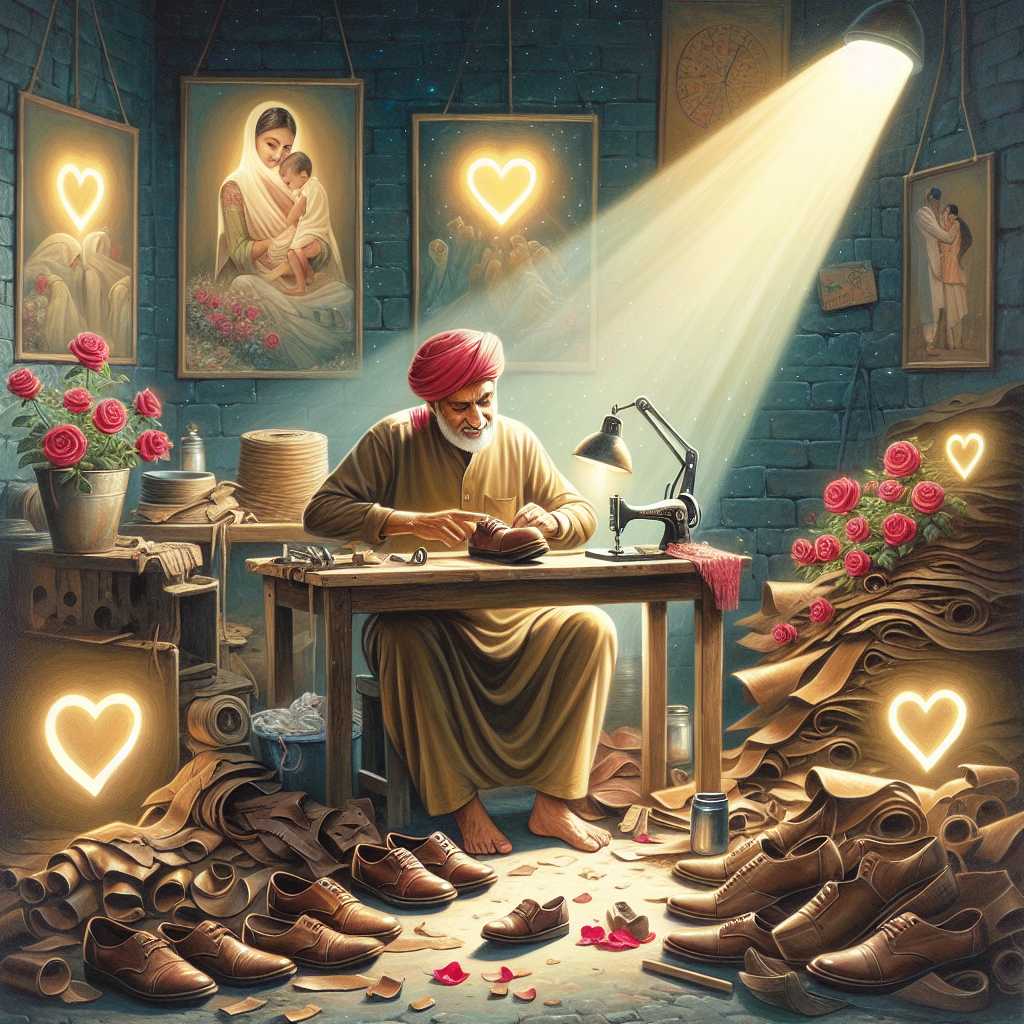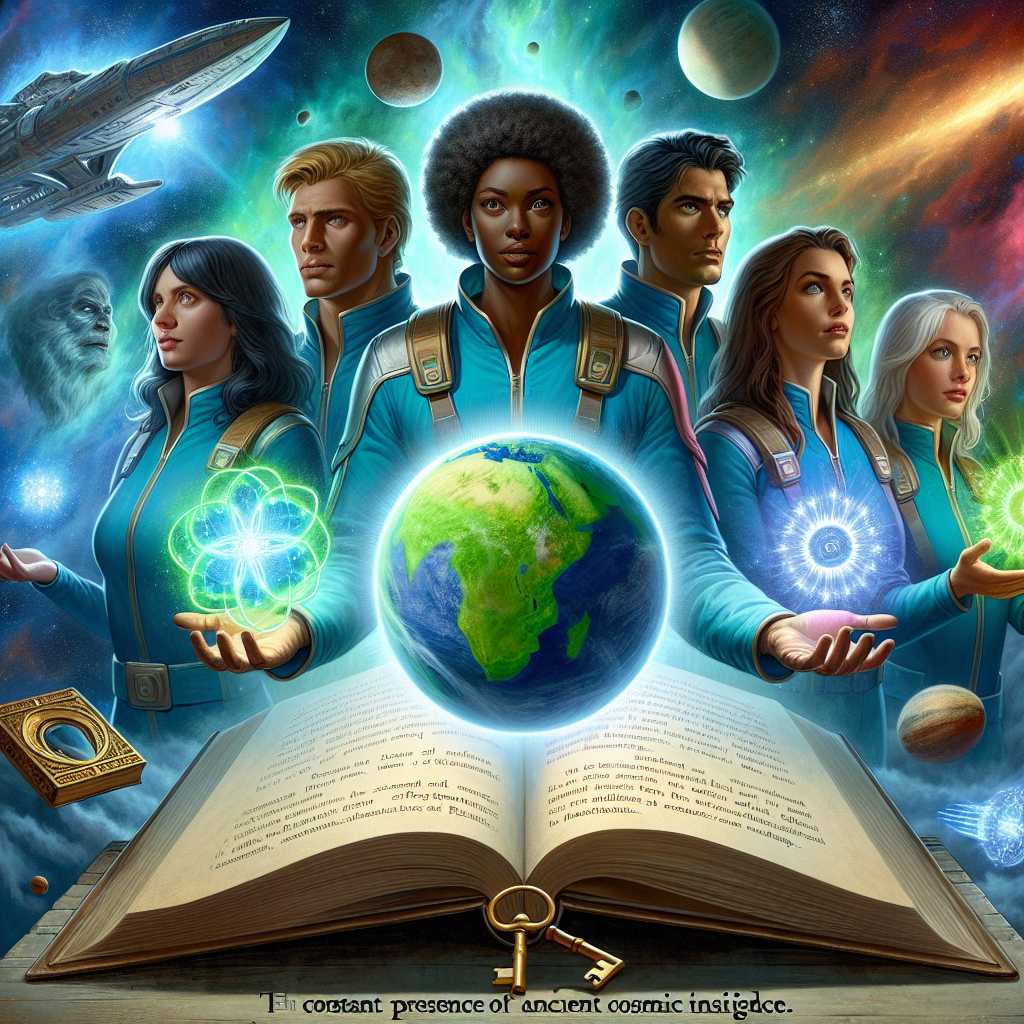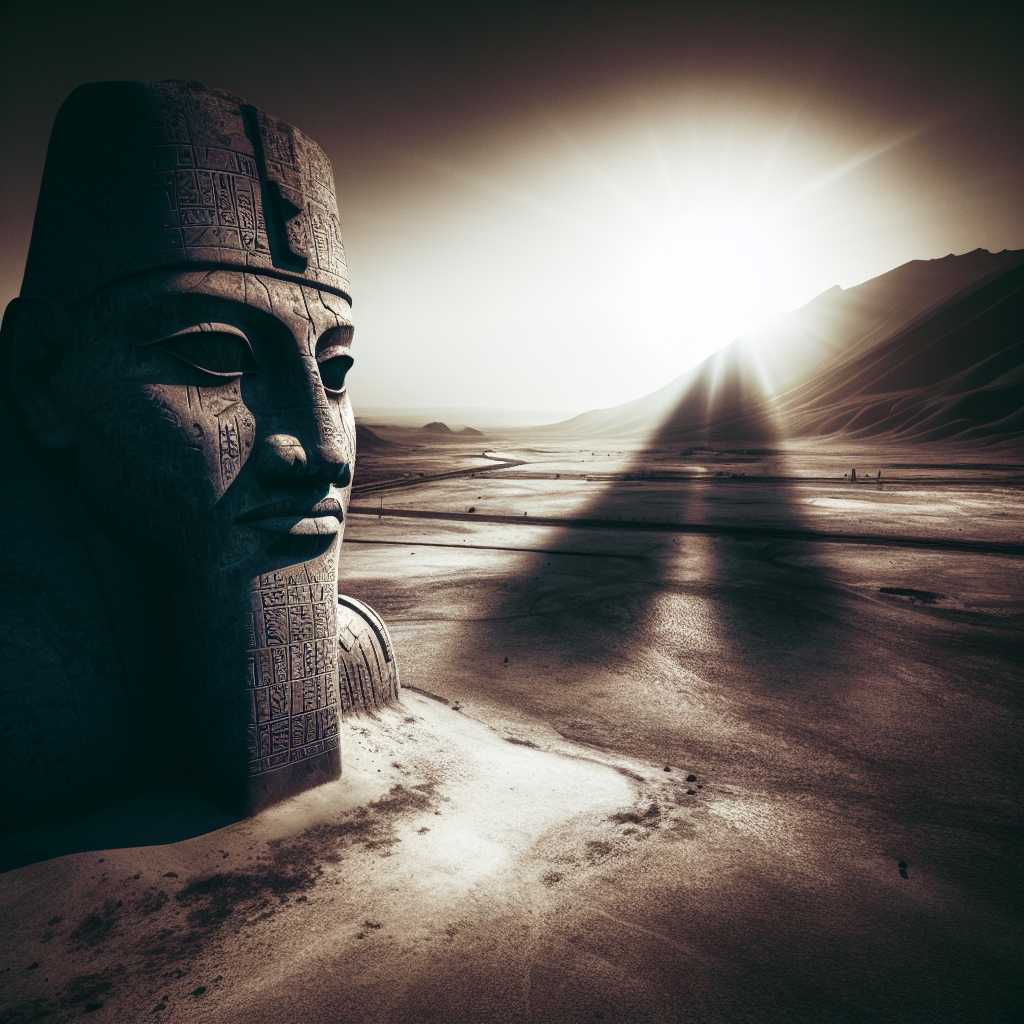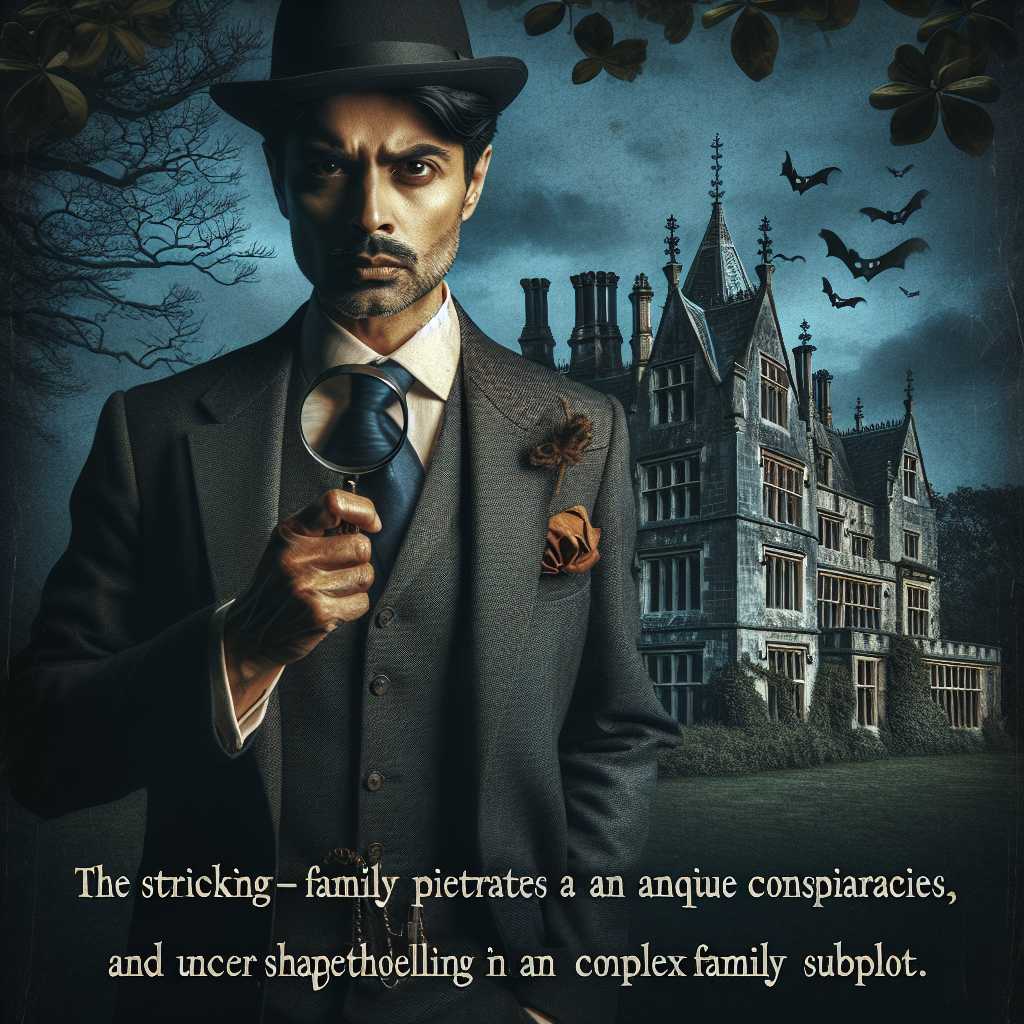
In a time not unlike our own, in a town nestled between verdant hills and crystal-clear streams, there lived a cobbler named Elijah. Elijah was known far and wide not just for the unmatched quality of his shoes but also for his unwavering faith. Each stitch he made, every sole he mended, was done with a prayer on his lips, entrusting his works to the Lord.
One day, as autumn painted the town in shades of gold and amber, a stranger came to Elijah’s shop. Cloaked in garments worn by time, the stranger's presence was accompanied by an air of solemnity that filled the room.
“Good sir, I have traveled many miles, and my feet are weary. Might you craft me a pair of shoes?” the stranger asked, his voice as soft as the breeze.
Without hesitation, Elijah agreed. “It would be my honor,” he said, for he saw it as a service not just to a man, but to God. As Elijah measured the stranger's feet, he noticed the deep lines etched in the stranger's face, telling stories of years gone by, of smiles and sorrows alike.
“You must have walked through storms and under stars alike,” Elijah remarked.
“Indeed, I have walked through valleys dark and over mountains high, seeking hearts willing to listen, willing to see beyond the mist,”
the stranger replied, his eyes holding a light that seemed to pierce through the very fabric of the world.
Elijah worked through the night, praying over the leather, infusing each shoe with love and care. As dawn broke, casting a golden glow over the town, he finished his work. The shoes were simple, yet imbued with a beauty that surpasseth mere appearance.
When the stranger returned, Elijah presented the shoes. “These are for you, crafted with the blessings of faith, hope, and love,” Elijah explained, his heart swelling with an indescribable joy.
The stranger donned the shoes, and at once, a transformation, subtle yet profound, occurred. His cloak, once tattered, now shimmered with a celestial hue. The air around him filled with a warmth that spread to every corner of the room, touching the heart of everyone present.
“Elijah, you have given me not just a pair of shoes but a testament of faith. Know this, your deeds have been seen, your prayers have been heard,” the stranger said, his voice resonating with an authority that defied earthly origins.
With those words, the stranger stepped outside, and as he did, miracles unfolded. The lame who had gathered in hope, the sick who had come in faith, found themselves healed. Tears of sorrow turned into cries of joy, and the town was filled with the glory of the Lord.
As the stranger departed, a path of light following his steps, he left behind a message that would etch itself into the hearts of all who heard.
“Let this town be a beacon of faith. As Elijah has shown, so too must you shine your light unto the world. For in the giving of oneself, in the act of love, there lies the greatest power,”
the stranger declared, before he vanished, leaving no trace but the echoes of his words and the miracles he had wrought.
In the days that followed, people from near and far came to witness the town transformed by faith. They came to see the cobbler, who through his humble service, had been a vessel for the divine. And Elijah, with the humility that had adorned his heart since the first day, received them all, sharing the story of the visitor, the shoes, and the miracles that followed.
Elijah’s tale spread far beyond the hills that cradled the town, becoming a legend. But more than that, it became a testament to the power of faith, hope, and love. For in Elijah’s act of kindness, in his willingness to serve, he had opened the door to something greater, to a world where the divine walked among men, where miracles were not just possible but present.
And so, the story of Elijah, the cobbler of faith, became a beacon to all who heard it, reminding them that in every act of love, in every gesture of faith, there lies the potential for the extraordinary. And in this way, the town became a symbol, a place where the heart of Christianity—love manifest in action—was lived out each day, inspiring generations to come.
The story concludes, but its message, eternal and unwavering, continues to echo through the ages: that in serving one another, in loving as we have been loved, we too can touch the divine, we too can weave miracles into the tapestry of our lives.










